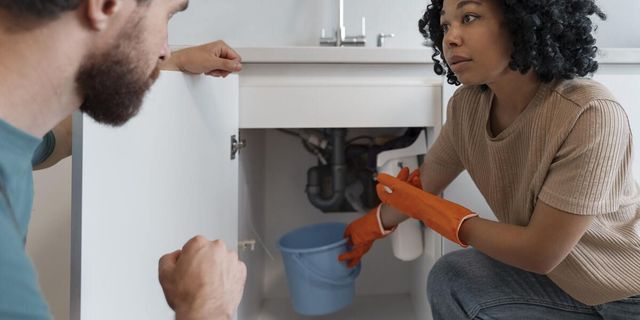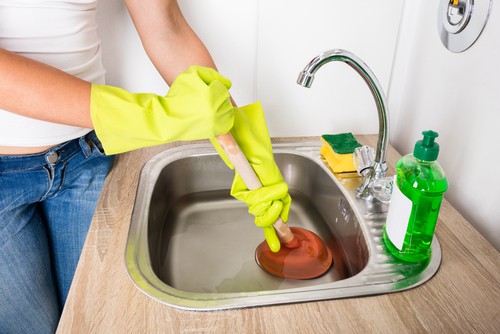Addressing Emergency Plumbing Problems: Immediate Solutions Until Expert Help Arrives
Addressing Emergency Plumbing Problems: Immediate Solutions Until Expert Help Arrives
Blog Article
We have stumbled upon this article relating to What to Do While Waiting for an Emergency Plumber listed below on the net and think it made good sense to write about it with you over here.

Plumbing emergencies can strike at any time, causing stress and potential damage to your home. Whether it's a burst pipe, a stopped up drain, or a leaky tap, recognizing how to handle the scenario up until a professional plumbing technician arrives can conserve you from additional difficulties. This short article supplies important emergency situation plumbing ideas to help you alleviate damage and reclaim control throughout a plumbing situation.
Shut off the Water Supply
The very first step in any type of pipes emergency is to shut down the water system. For localized problems, such as a leaking tap or toilet, shut off the shutoff near the fixture. In the case of a significant leakage or ruptured pipeline, find your home's main water shut-off shutoff and transform it off instantly. Recognizing the place of these valves ahead of time can conserve important time during an emergency.
Address Little Leaks with Momentary Fixes
Small leakages can quickly come to be considerable problems if left uncontrolled. Utilize these temporary solutions up until professional aid arrives:
While these fixes aren't irreversible, they can assist reduce water loss and damages.
Unclog Drains Pipes Safely
A clogged up drain can be an irritating and unpleasant concern. Here's just how to tackle it:
If these approaches don't function, avoid utilizing too much force, as it may aggravate the obstruction.
Take Care Of Overflowing Toilets
An overruning commode can create immediate chaos. Right here's what you must do:
Shut down Your Hot Water Heater
In specific emergencies, such as a ruptured pipeline, it's a good idea to shut off your hot water heater. This stops overheating or damage to the device when water stops flowing. Switch off the power supply to the water heater (electric or gas) and let it cool to prevent prospective hazards.
Briefly Quit a Ruptured Pipe
A ruptured pipe can bring about considerable water damages in mins. To mitigate the problem:
Call a professional plumbing technician immediately to attend to the problem permanently.
Take Care Of Frozen Pipes Very Carefully
In cooler climates, icy pipes are a typical emergency situation. If you suspect a frozen pipeline:
Stop More Damage
Taking quick activity to decrease damage can save you money and time in the future. Here's how:
. Have an Emergency Situation Pipes Set
Prepare a fundamental plumbing emergency kit to handle small concerns successfully. Your set ought to include:
Having these tools on hand can make a substantial difference in your ability to take care of emergency situations.
Know When to Call an Expert.
While quick fixes can help momentarily, specific plumbing issues call for instant specialist focus. Call a plumbing professional if:.
Immediately getting in touch with a professional ensures the concern is solved properly and avoids further difficulties.
Verdict.
Plumbing emergencies can be frustrating, however with the best knowledge and devices, you can handle the situation properly up until assistance arrives. By turning off the supply of water, addressing little leakages, and utilizing temporary repairs, you can decrease damage and maintain your home safe. Remember, these suggestions are short-lived solutions; always get in touch with a certified plumbing professional to handle the root cause of the issue. Prep work and quick reasoning are your ideal allies in any pipes emergency situation.
8 Helpful Tips for Managing Plumbing Emergencies at Home
If your plumbing system hasn’t failed once, wait for it because almost everyone has a story to tell. Sometimes, it could be simple emergencies such as a leaking pipe, a blocked cistern, or even a big burst pipe. In situations like this, you need to have some handy tips to save you some money and from possible damages.
Take care of minor issues early.
Sometimes, you could have avoided an emergency by taking proactive measures while it was still early. Some major plumbing emergencies can be a result of an ignored minor issue. We recommend that you have items like plumbing tapes and other related items. A plumbing tape can allow you to manage minor leaks before the plumber arrives.
Cut off the water supply.
This tip is essential in almost any type of leakage problem. For problems like minor leakages in the toilet or kitchen, turn off the supply that takes water to the affected pipes. If the leakage is a major pipe, you must shut off the supply valve to the entire building. This will help you avoid flooding your home and neighbors if you share a flat.
Know your plumbing system
Folks typically move into a new apartment without understanding the water supply around the building. This can prove disastrous if a water emergency arises and the plumber is far away. The previous tip will prove useless if you don’t practice this one. More importantly, know where your water shut-off valve is located – you’ll need that knowledge to prevent potential home floods.
Have some common handy tools
There are lots of plumbing emergencies that you can handle without hiring a plumber. That’s why you must keep some tools available always. Some tools that you can use to fix simple plumbing emergencies easily include plumbing tapes, screwdrivers, thread seal tapes, plungers, pliers, tape measures, and rubber gloves.
Insulate your pipes from cold
You’ll save yourself from many plumbing expenses if you protect your water pipes from the cold. This is because of the harmful effects that cold weather can have on your pipes. During winter, your pipes can burst from being overly expected to freezing temperatures. So, make sure insulators are there to keep the pipes working correctly.
Avoid practices that will clog your toilet.
Many people indulge in practices that can damage the plumbing system of the entire building. One of these is when they use their toilet to dispose-off garbage. They flush all kinds of things, such as paper towels, bandages, hairs, female sanitary products, etc., down the toilet. This will block your toilet in the long run, incurring unnecessary expenditures. Dump such waste in the trash instead.
Check your dials regularly.
Sometimes, there could be leakages in your home without noticing them in time. So, constantly monitor your water meter dial. If the dial is reading when there is nobody using water, this is an indicator that there is leaking. Check for leaks immediately. Call a plumber as soon as possible if you can’t find any.
https://www.constructionplacements.com/8-helpful-tips-for-managing-plumbing-emergencies-at-home/

I discovered that post on What to Do While Waiting for an Emergency Plumber when surfing the internet. Sharing is caring. Helping others is fun. Thanks for your time. Please visit our website back soon.
Schedule A Free Estimate Report this page